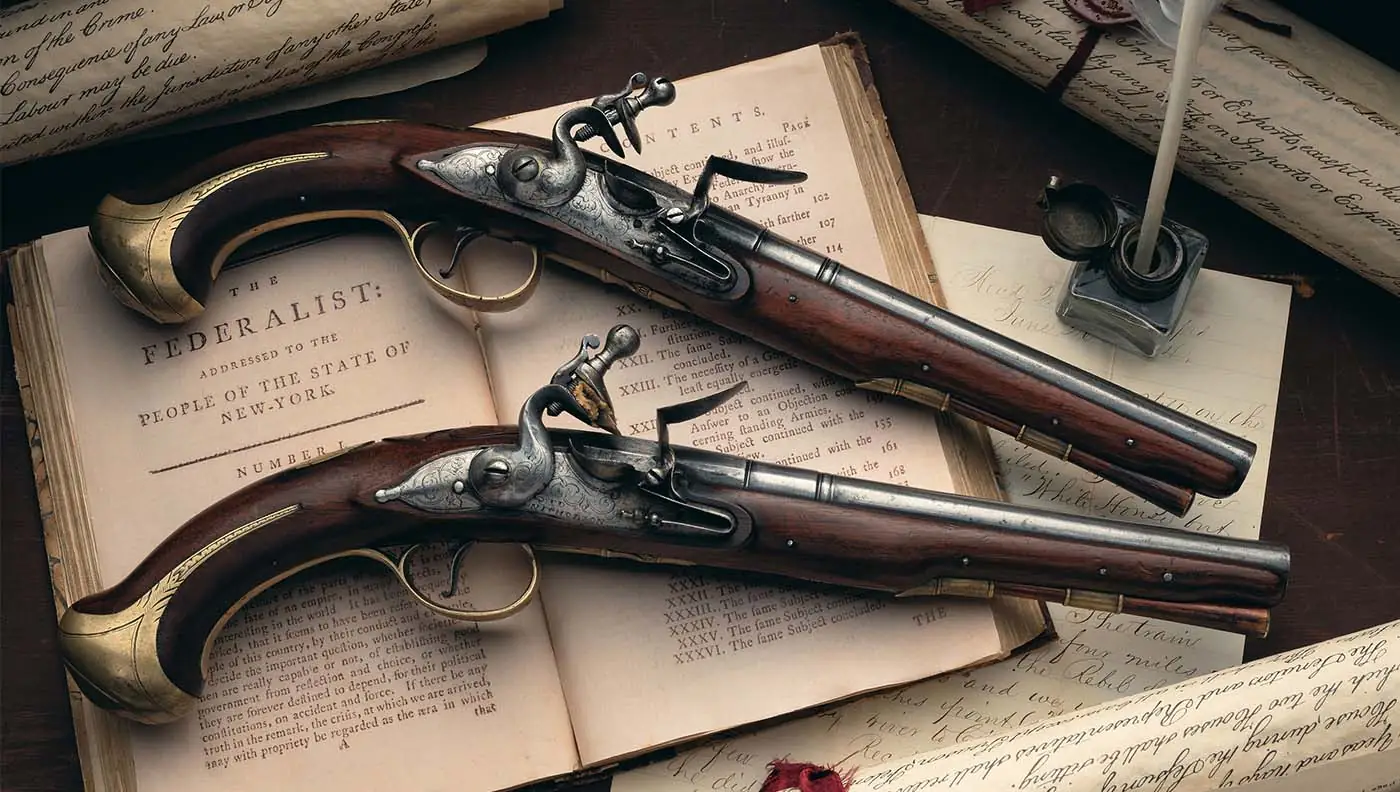Selling antique guns in the United States is a fascinating venture that intertwines history, craftsmanship, and the art of negotiation. Whether you’re a firearms enthusiast, a novice shooter, or a history teacher, understanding how to sell these classic pieces requires a blend of knowledge, patience, and attention to detail. In this guide, we’ll walk through the essential steps and considerations for selling antique guns in the US, ensuring you navigate this process smoothly and legally.
Understanding Antique Guns
Before considering selling, understand what qualifies as an “antique gun.” In the United States, an antique firearm is typically defined by age. Specifically, any gun made before 1899 is considered an antique. This means it can be sold without needing a federal firearms license (FFL). However, it’s always wise to double-check your local laws, as regulations can vary from state to state.
Historical Significance
Antique guns are not only old but also carry significant historical value. These firearms represent different eras, showcasing technological advancements and shifts in design trends. Understanding the historical context of your gun can provide insights into its potential value and appeal to collectors.
Craftsmanship and Design
The craftsmanship of antique guns is another aspect that fascinates collectors and enthusiasts. From intricate engravings to innovative mechanisms, these guns are a testament to the skill and creativity of their makers. Highlighting unique design elements can be a selling point when marketing your firearm.
Legal Definition and Exceptions
While the general rule is that guns made before 1899 are considered antiques, there are exceptions. Despite their age, some guns may not qualify due to modifications or the use of certain types of ammunition. Understanding these nuances is crucial to ensure compliance with legal standards.
Preparing Your Antique Gun for Sale
Proper preparation of your antique gun can significantly impact its marketability and value. Taking the time to assess its condition, document its history, and present it well can make a substantial difference in attracting potential buyers.
Assessing the Condition
The condition of your antique gun plays a significant role in its value. A firearm in pristine condition with all original parts will naturally fetch a higher price than one that has been heavily restored or has missing components.
- Initial Inspection: Begin with a thorough visual inspection. Look for signs of wear, rust, or damage. Pay attention to the barrel, stock, and any moving parts.
- Cleaning and Preservation: Gently clean the firearm to enhance its appearance, but avoid over-cleaning, which can strip away valuable patina.
- Professional Appraisal: Consider hiring a professional appraiser to assess the gun’s condition and provide a valuation. This can be particularly helpful if you’re unsure about its market value.
Documenting Provenance
Provenance refers to the history of the gun’s ownership. This can include previous owners, any notable historical significance, and documentation or receipts from past sales.
- Researching Ownership: Investigate the gun’s history by tracing its previous owners and any notable events it may have been part of. This information can add significant value.
- Gathering Documentation: Collect any available documentation, such as receipts, letters, or historical records that can verify the provenance.
- Presenting Provenance: When marketing the gun, show the provenance clearly and concisely. Highlight any unique historical connections or ownership by notable figures.
Taking Quality Photos
High-quality photos are indispensable when selling antique guns, especially if you’re doing so online. Capture images from multiple angles, highlighting unique features, engravings, and imperfections.
- Lighting and Background: Use good lighting and a neutral background to enhance the gun’s features and minimize distractions.
- Detail Shots: Include close-up shots of any engravings, markings, or unique features that distinguish the gun.
- Consistency: Ensure all photos are consistent in quality and style to provide a professional presentation.
Finding the Right Marketplace
Choosing the appropriate marketplace for selling your antique gun can significantly influence the sale’s success. Different platforms offer varying levels of exposure and cater to distinct buyer demographics.
Online Platforms
The internet has made it easier than ever to connect with potential buyers. Websites like GunBroker.com and GunsAmerica.com specialize in firearms sales and have sections dedicated to antiques.
- Platform Selection: Research different online platforms to find those that best match your needs and the type of antique gun you sell.
- Optimizing Listings: Use descriptive keywords such as “old guns for sale” or “antique gun sales USA” to increase visibility.
- Engaging with Buyers: Be responsive to inquiries and provide detailed information to build trust with potential buyers.
Auctions and Gun Shows
Attending gun shows and auctions can be an excellent way to sell antique firearms. These events attract collectors and enthusiasts who appreciate the historical value of antique guns.
- Event Selection: Choose events with a reputation for attracting serious collectors and knowledgeable buyers.
- Presentation: Set up an appealing display that highlights the features and history of your gun.
- Networking: Use these events to network with other collectors and sellers, which can lead to future sales opportunities.
Selling to Specialized Buyers
Luxus Capital is known for purchasing valuable and unique firearms. If your antique gun is of high value, considering a direct sale to a specialized buyer like Luxus Capital might be a wise choice.
- Appraisal and Offer: Allow the specialized buyer to appraise your firearm and provide an offer based on its value and uniqueness.
- Negotiation: Be prepared to negotiate terms to ensure you receive a fair price.
- Building Relationships: Establishing a relationship with specialized buyers can lead to future sales and referrals.
Legal Considerations
Understanding and adhering to legal requirements is crucial when selling antique guns. While the process may be less complex than selling modern firearms, there are still essential regulations to follow.
Understanding the Law
While selling antique guns generally requires less paperwork than modern firearms, you must familiarize yourself with the relevant laws. Ensure the weapon qualifies as an antique under federal law and check for state-specific regulations.
- Federal Regulations: Review federal laws to confirm that your firearm meets the antique classification.
- State and Local Laws: Research state and local laws, as they can vary significantly and may impose additional requirements.
- Compliance: Always conduct sales through legal channels to avoid potential legal issues.
Keeping Records
Maintaining a record of the sale is a good practice. This includes the buyer’s information, the sale price, and relevant documentation or correspondence.
- Documenting Transactions: Keep detailed records of all sales transactions, including contracts, receipts, and any communications with the buyer.
- Legal Protection: Proper documentation can provide legal protection during disputes or claims.
- Future Reference: Having a comprehensive record can be helpful for tax purposes or future sales.
Seeking Legal Advice
If you’re uncertain about any legal aspects of selling antique guns, consider seeking professional legal advice. An attorney with experience in firearms law can provide guidance tailored to your situation.
- Consultation: Consult a lawyer to discuss legal concerns or questions.
- Clarifying Regulations: Get straightforward explanations of complex regulations to ensure full compliance.
- Peace of Mind: Legal support can provide peace of mind and prevent potential legal issues.
Tips for a Successful Sale
Successfully selling your antique gun involves more than just listing it for sale. Employing strategic techniques can enhance your chances of a profitable transaction.
Setting the Right Price
Research is key to pricing your antique firearm correctly. Look at recent sales of similar guns to understand your worth.
- Market Research: Analyze the market for similar antique guns to understand pricing trends.
- Value Factors: Consider factors like rarity, condition, provenance, and historical significance when setting a price.
- Flexibility: Be prepared to adjust your price based on buyer interest and feedback.
Negotiating with Buyers
When negotiating, be prepared to answer questions about the gun’s history, condition, and any restorations. Being open and honest will build trust with potential buyers and lead to a successful sale.
- Communication Skills: Develop strong communication skills to convey your gun’s value and history effectively.
- Transparency: Be transparent about flaws or restorations, as honesty builds trust.
- Closing the Deal: Be willing to negotiate and find common ground to close the sale successfully.
Building a Reputation
Building a positive reputation is essential if you plan to sell more antique guns. Deliver excellent customer service, provide accurate descriptions, and be responsive to inquiries.
- Customer Service: Offer excellent customer service by being attentive and helpful to buyers.
- Accurate Listings: Ensure your listings are correct and detailed to prevent misunderstandings.
- Word of Mouth: Satisfied buyers are more likely to recommend you to others or return for future purchases.
Conclusion
Selling antique guns in the US is a rewarding endeavor that combines a love for history with the excitement of the sales process. Whether you’re reaching out to enthusiasts through online platforms, negotiating with specialized buyers like Luxus Capital, or engaging in person at gun shows, understanding the nuances of antique firearms will help you succeed. By following these guidelines and adhering to legal requirements, you’ll be well-equipped to sell your antique guns confidently and legally.









